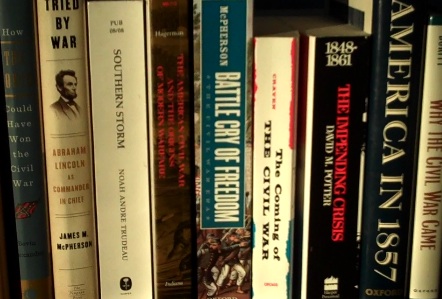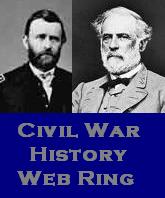[Note: This post continues a series on The Civil War as Revolution which is available at the following links: Part I, Part II, Part III, Part IV, Part V, The Revolutionaries of the American Civil War, and Cogitating on Abraham Lincoln as Revolutionary.]
 Continuing with the topic of the Civil War as the second American Revolution, the impact of what McPherson termed internal revolution was even more dramatic than external revolution. At its heart was the change in status of the nation’s four million slaves, their emancipation, “…elevation to civil and political equality with whites, and the destruction of the old ruling class in the South – all within the space of a half-dozen years.”[i] George Clemenceau called it “one of the most radical revolutions known to history.”[ii] A slave freed in the 1860’s exclaimed that “the bottom rail’s on top.”[iii] A South Carolinian called post war Reconstruction – without slavery – “the maddest, most infamous revolution in history.”[iv]
Continuing with the topic of the Civil War as the second American Revolution, the impact of what McPherson termed internal revolution was even more dramatic than external revolution. At its heart was the change in status of the nation’s four million slaves, their emancipation, “…elevation to civil and political equality with whites, and the destruction of the old ruling class in the South – all within the space of a half-dozen years.”[i] George Clemenceau called it “one of the most radical revolutions known to history.”[ii] A slave freed in the 1860’s exclaimed that “the bottom rail’s on top.”[iii] A South Carolinian called post war Reconstruction – without slavery – “the maddest, most infamous revolution in history.”[iv]

But both McPherson and Ransom present the cases of historical revisionists who, in the 1960s and 1970s contested the notion “that the American Civil War accomplished any sort of genuine revolution….Some even denied that it produced much significant change in the social and economic structure of the South or in the status of black people.”[v] One thrust of their argument was that much of the momentum surrounding the industrial revolution was gained in the decades before the Civil War. This challenge to Beard’s thesis of the war as an economic revolution, suggests that advancements such as “the railroad, the corporation, the factory system, the techniques of mass production of interchangeable parts, the mechanization of agriculture, and many other aspects of a modernizing industrial economy – began a generation or more before the Civil War, and that while the war may have confirmed and accelerated some of these,” it really didn’t cause a major shift in direction.[vi] While McPherson concedes that these changes were well underway, he finds in them support of Beard and Moore theses rather than detraction. The reason is that modernization was occurring in the North, not the South.
The South remained a labor-intensive, labor-repressive undiversified agricultural economy. The contrasting economic systems of the antebellum North and South helped to generate the conflicting proslavery and antislavery ideologies that eventually led to war. Northern victory in the war was therefore a triumph for the northern economic system and the social values it generated. The war discredited the economic ideology and destroyed the national political power of the planter class.[vii]
More challenges to the war as revolution in Part V.
Copyright © 2007 Rene Tyree
[i] James McPherson,Abraham Lincoln and the Second American Revolution, (New York: Oxford University Press, 1991), 10., [ii] Ibid., [iii] Ibid., 11., [iv] Ibid., 13., [v] Ibid., [vi] Ibid., [vii] Ibid.
 d takes a look at the study of historical thought itself. I also consider it important for the development of solid historical research skills. From the course description, “it concentrates on how history has been interpreted, rather the facts of history themselves. The course contemplates the fundamental questions about the nature of history and investigates the relationships between theory and evidence in historical writing.”
d takes a look at the study of historical thought itself. I also consider it important for the development of solid historical research skills. From the course description, “it concentrates on how history has been interpreted, rather the facts of history themselves. The course contemplates the fundamental questions about the nature of history and investigates the relationships between theory and evidence in historical writing.”
 ss, 1994.
ss, 1994.
















































